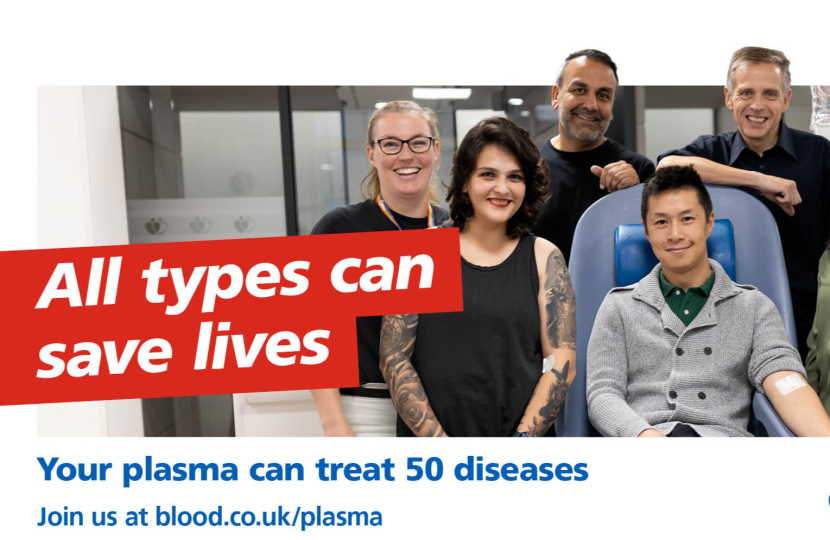
Richard attended the Plasma Awareness Parliamentary Event last month, hosted by NHS Blood and Transplant with Societi – The UK Kawasaki Disease Foundation and Immunodeficiency UK. He is supporting the Plasma Donation Campaign which runs from 22nd-28th April 2024 at three donor centres in Birmingham, Reading and Twickenham.
Blood is mostly made up of plasma and it contains the antibodies which fight infections. Those antibodies are made into medicines to help around 17,000 people treating 50 serious diseases. What is not widely known is that the NHS was not able to produce its own medicine from UK plasma for 25 years following an MHRA ban from the late 1990’s based on fears over the potential spread of Variant Creutzfeldt-Jakob disease (vCJD). This produced a reliance solely on imports of plasma medicines from other countries, predominantly the USA, to help the thousands of patients across England who need these life-saving drugs.
In April 2021, citing new scientific evidence, the MHRA was able to lift the ban on the use of UK plasma for the manufacture of immunoglobulin from UK plasma; shortly followed by a lifting of the ban on Albumin. Both Immunoglobulin and Albumin are critical medicines for the NHS. Immunoglobulin, in particular, is in short supply globally, and the demand supply gap is widening. Consequently, the Department of Health and Social Care has made it a strategic imperative to create some “self- sufficiency” to protect vulnerable patients from the risk of global supply shocks.
Richard Fuller MP said
To create a sustainable supply of plasma for England, the NHS needs to collect around 30,000 litres of donated source plasma from April 2024. That is around 870 litres donations a week from the three donation centres in Birmingham, Reading and Twickenham.
Plasma donation week takes place between 22 April to 28 April 2024 and has been established to raise awareness and encourage people to donate their plasma.
To find out more please visit www.blood.co.uk/plasma
